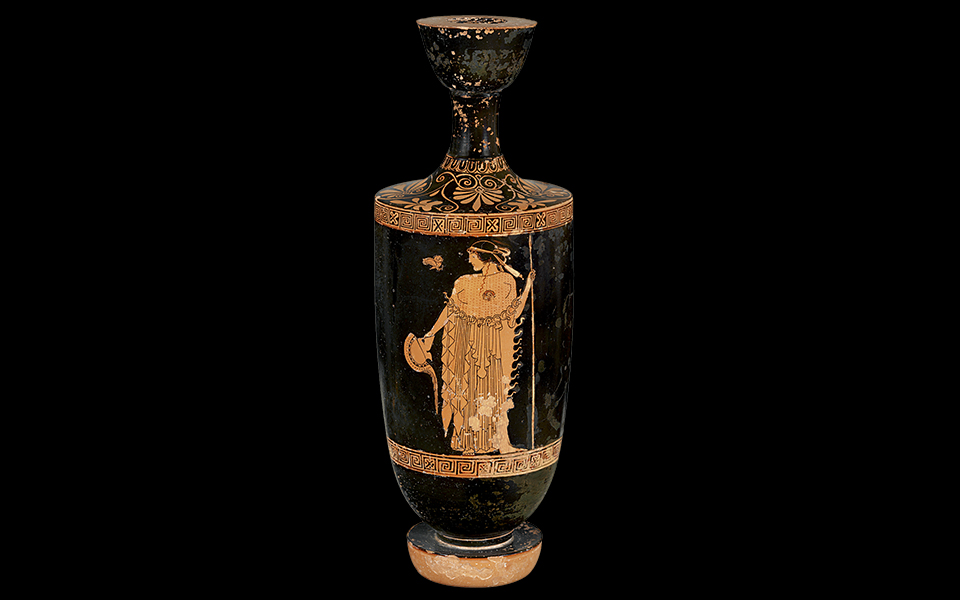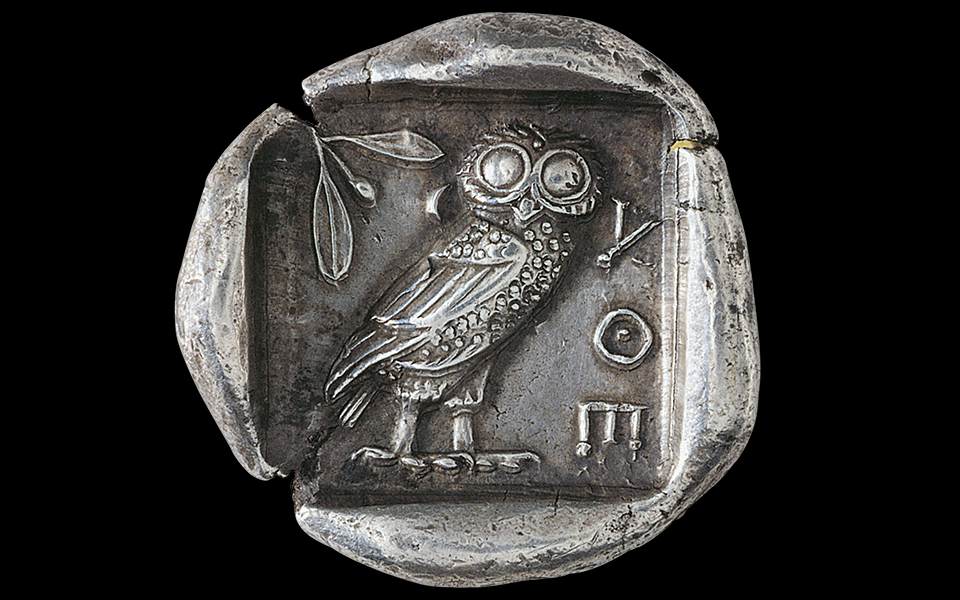As you approach the entrance to Bernard Tschumi’s concrete-and-glass Acropolis Museum, you will encounter something resembling a primitive security device. Mounted atop a tall column, a white marble owl, at once elegant, inscrutable and slightly intimidating, fixes the visitor with its penetrating gaze. This statue, dating to the Archaic period, is a welcome touch preserved from the previous Acropolis Museum.
The owl has been a defining feature of the Acropolis and the city of Athens for centuries, and there are many more to be seen, both in the museum and around the city. Some romantic accounts have its distant ancestors roosting in the high rafters of the original Parthenon, before it was burned by the Persians in 480 BC, to be replaced by the more familiar marble temple that stands on the Acropolis today.
In classical times, the owl was the emblem of the city of Athens. It was the sacred bird of the goddess Athena, the city’s patron deity. Vase paintings, statues and reliefs often show Athena in the company of an owl, which sometimes flies around her and at other times sits on her shoulder, imparting its counsel. In addition to being a fierce protectress of the city, Athena was the goddess of wisdom, and the owl was the embodiment of her intellectual powers.
Nobody knows exactly how this association came about. Some say it was either the owl’s human-like gaze or its ability to see in the dark that gave the bird its reputation for wisdom. Others suggest that the roots of this connection lie deep in prehistoric myth, hinted at by early images of female divinities in the company of birds. To this day, the little owl (Athena noctua) owes its scientific name to its relationship with the goddess Athena.

© Roger Fund, 1909/www.Metmuseum.Org
While people from other cultures around the world associate the owl with misfortune and witchcraft, the ancient Athenians considered it a good omen. On the battlefield, the sight of an owl rallied the Athenian troops with the promise of victory. In one famous instance, the Athenian general Themistocles was addressing his fellow citizens from the deck of a ship, trying to convince them that they should deploy the fleet against the invading Persians. As he was stating his case, an owl flew in from the right and perched on the ship’s mast. The avian visitor won Themistocles the argument, the fleet engaged the Persians in the Battle of Salamis, and the city was saved.
But the owl had more prosaic associations as well. When the chorus in Aristophanes’ comedy The Birds promises that owls from Lavrion will flock to the audience, the reference was to owls of the silver variety, i.e., money. In classical times, Athens owed its wealth to the silver extracted from the mines of Lavrion, located on the coast southeast of the city. The Athenian tetradrachm, the four drachma coin, was imprinted on one side with the image of Athena and on the other with an owl and an olive branch, Athena’s fruitful gift to the city.
The coin was known colloquially as a glaux (little owl), and was the reserve currency of the ancient world. The current one-euro coins minted in Greece bear the same motif of the glaux as the ancient Athenian coin. The owl’s association with money is also where the ancient expression “owls to Athens” is thought to originate: like the English equivalents, “coals to Newcastle” or “ice to the Eskimos,” it means “to offer someone what they have in abundance” and is shorthand for a pointless gesture, or a statement of the obvious.
INFO
If you would like to make a gesture that is not pointless, you can help conserve the Athenian owl and other Greek wildlife by supporting the volunteers of Anima (www.facebook.com/anima.gr)












